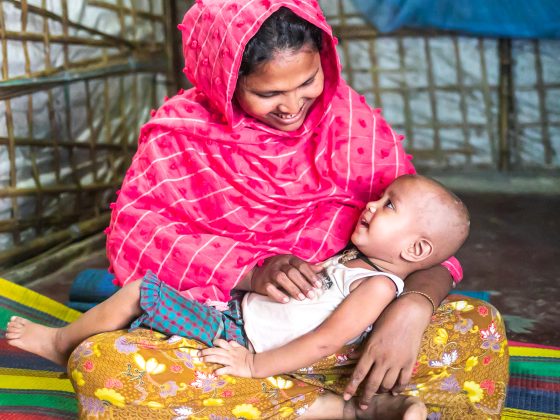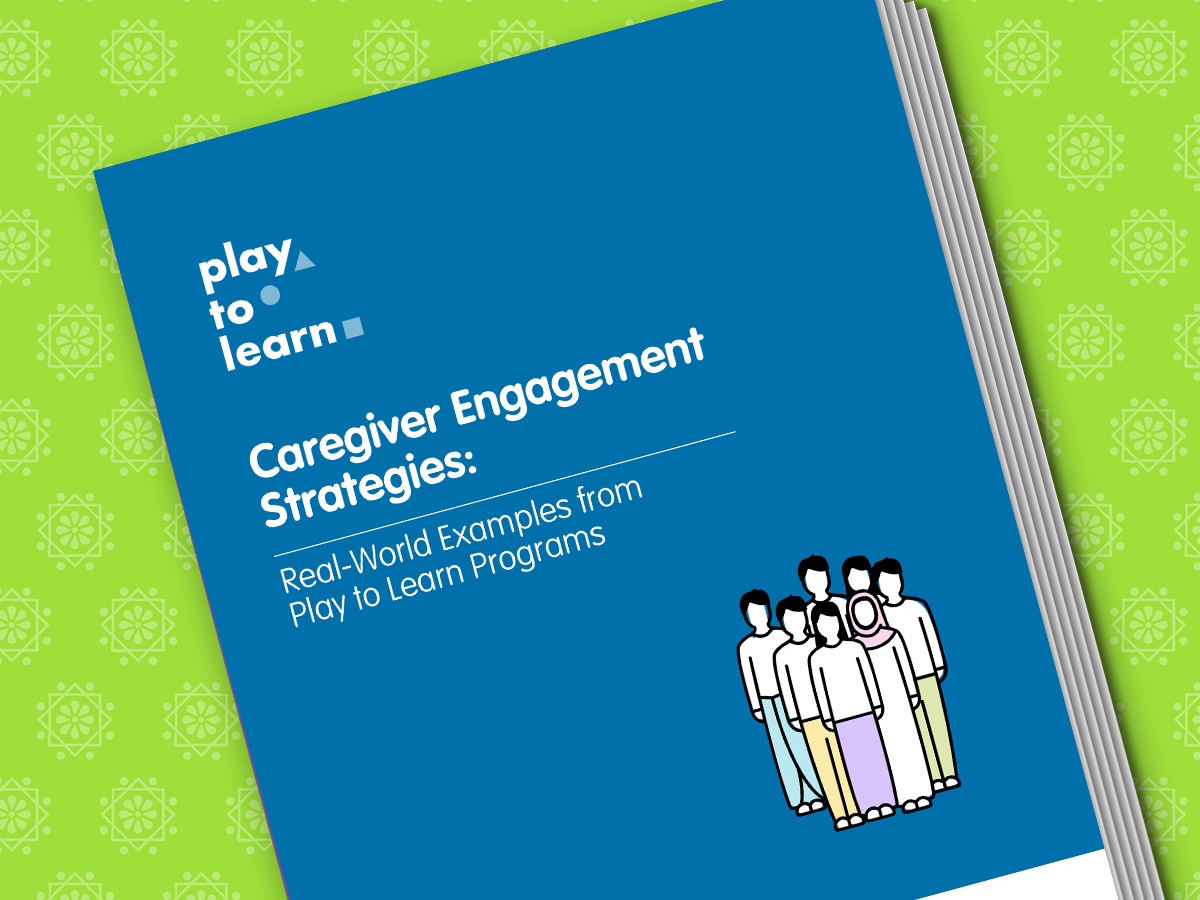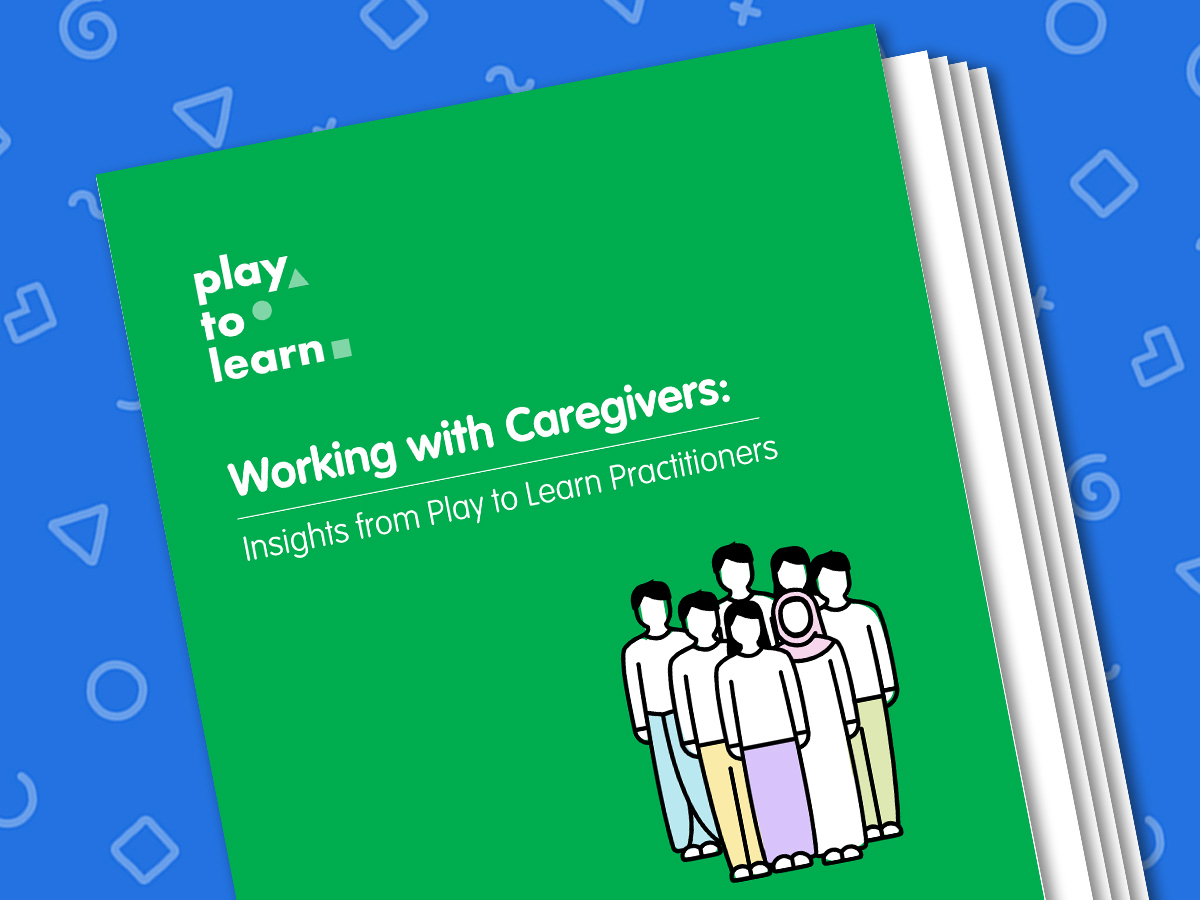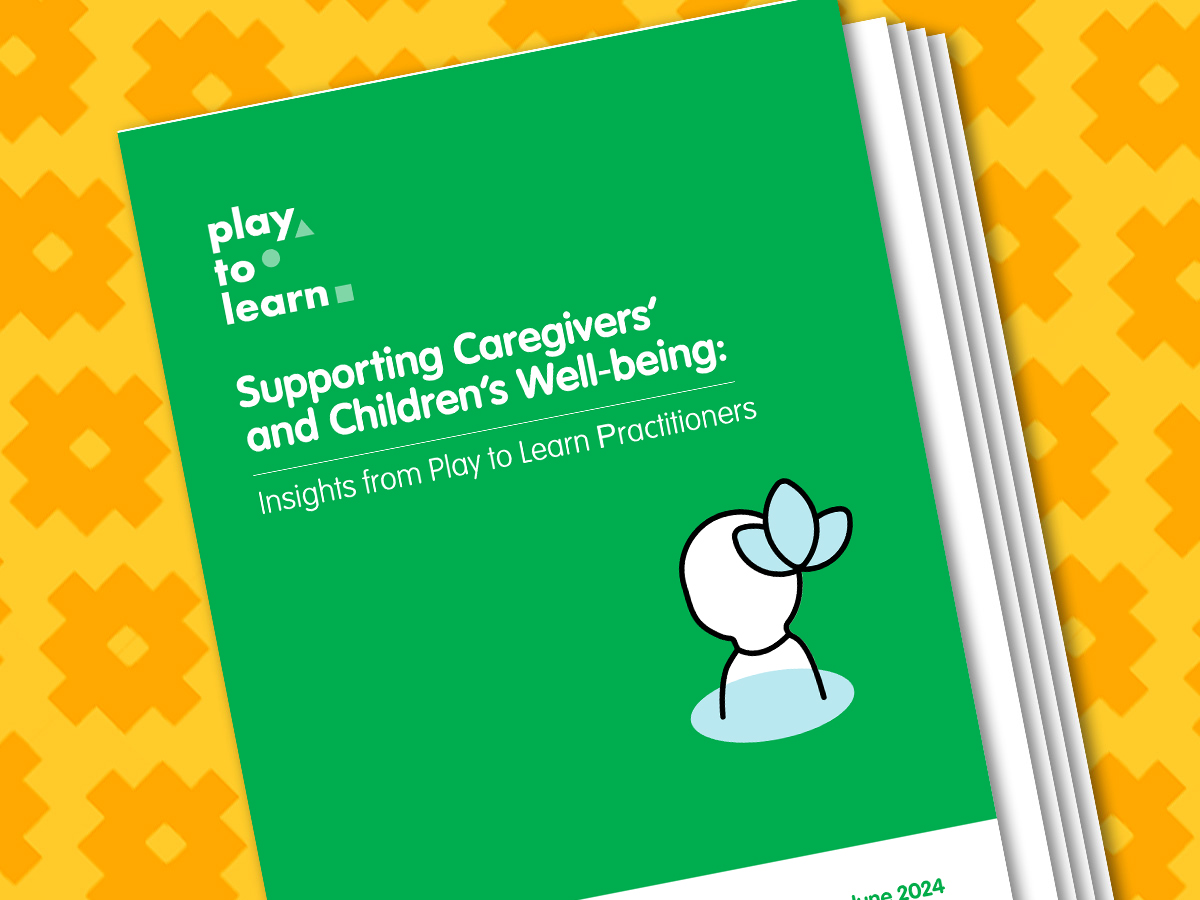Caregivers are children’s first champions. Play to Learn offers the following principles for engaging caregivers based on our project’s experience:
- Creating opportunities for caregivers to interact and exchange with one another is essential.
- Gender-specific programming for caregivers may be more effective at providing relevant and targeted support.
- Meeting caregivers in places where they already go can ensure they receive relevant, timely information and support that are tailored to their needs.
- Multi-generational programming engaging both caregivers and children can support positive growth and development.
- More holistic, multi-sectoral programming is highly beneficial to the overall support of caregivers and their capacity to care for their children.
Creating opportunities for caregivers to interact and exchange with one another is essential.
Being a caregiver can be isolating, especially if families have been displaced and left behind their social support systems. Designing or implementing early childhood development (ECD) programming that gives caregivers opportunities to engage with each other in-person or remotely will allow caregivers the opportunity to expand their network of support for caregiving and learn new information and strategies.
In a qualitative study on IRC’s Ahlan Simsim Families program, a majority of caregivers reported a preference for in-person sessions because it gave them an opportunity to engage and exchange with one another.
In formative research under the Pashe Achhi Telecommunications Model, caregivers who participated in this remote program expressed that the addition of an in-person component provided broader scope for emotional connection and relief.
Gender-specific programming for caregivers may be more effective at providing relevant and targeted support.
It is important to offer all caregivers relevant information about how they can support their children as well as their co-caregivers to support the family. Male and female caregivers may have different focuses and needs, so meeting separately by gender and setting unique goals for each group can provide comfort and confidence.
In the Mother-Child Dyad Model and Father’s Engagement Model in Bangladesh, male and female caregivers engaged in in-person sessions in gender-segregated groups to allow them the opportunity to discuss topics that were specific to their needs as well as organize timing and location to suit their schedules.
Meeting caregivers in places where they already go can ensure they receive relevant and timely information and support that are tailored to their needs.
Caregivers have jobs and commitments outside of caregiving. By meeting caregivers at local services such as health centers or through social media, it makes it easier for caregivers to participate and engage. Content covered with caregivers were developed based on feedback, such as what topics to cover, length and frequency of sessions.
The Ahlan Families program was delivered in IRC and partner centers where caregivers converged for other services, such as health, livelihoods trainings, or cash assistance. An adaptation of Ahlan Simsim Families was also delivered in Jordan through the Smile Caravans, which were mobile units visiting the most underserved communities across Jordan.
The Play at Home: an ECD Home Kit program in Bangladesh utilized a home visit model to provide training and ongoing support to caregivers in their own homes in Rohingya refugee camps. Home visits allowed facilitators to coach caregivers on how to engage in play-based learning activities in the home environment in a personalized manner.
Multi-generational programming engaging both caregivers and children can support positive growth and development.
When possible, engaging the whole family and beyond more effectively provides support and addresses needs that the family is having in a comprehensive and holistic way.
In NYU Global TIES’ research in Rohingya camps, they found that primary caregivers as well as the wider community were essential to the caregiving of children. The Mother-Child Dyad Model, paired with the Father’s Engagement Model, and the Gindegi Goron Program all engaged multiple generations within a family (caregivers, grandparents, and older siblings) to build upon existing family structure.
More holistic, multi-sectoral programming is highly beneficial to the overall support of caregivers and their capacity to care for their children.
When care is given to caregivers, it helps them to better care for their children. Consider the aspects of support and growth to caregivers so that their wellbeing improves.
In the Humanitarian Play Labs, early learning was front and center, but psychosocial support was also integrated. Para-counselors provided such support to caregivers and led wellbeing sessions. To learn more, check out the resource on who supported caregivers to cope and strengthen their mental health and wellbeing.
The Semillas de Apego Watch, Play, Learn Integration Pilot included caregiver psychosocial support, providing weekly sessions focused on helping caregivers to process trauma and foster secure attachment bonds, in addition to early learning and emotional support for children.




